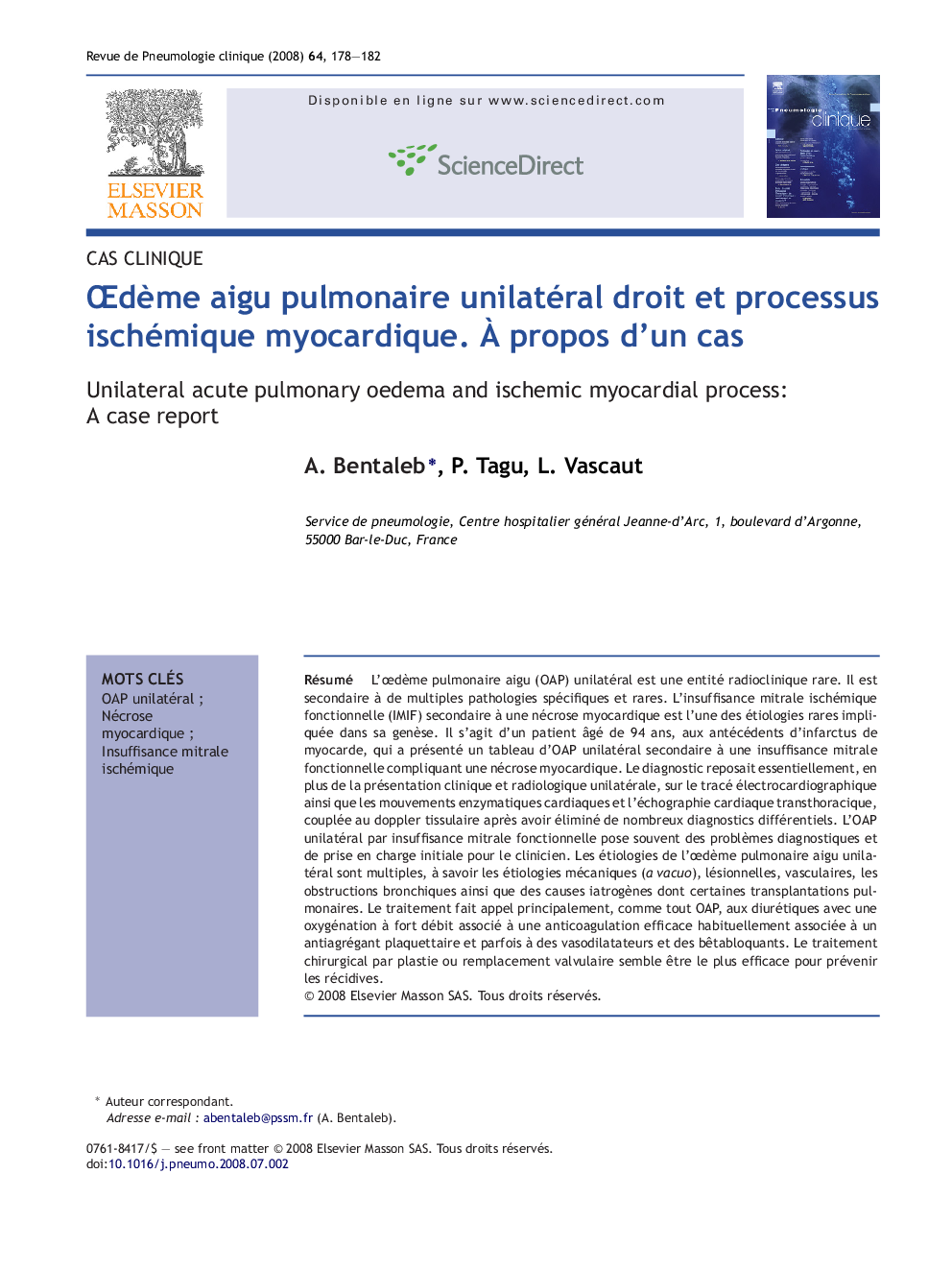| Article ID | Journal | Published Year | Pages | File Type |
|---|---|---|---|---|
| 3419866 | Revue de Pneumologie Clinique | 2008 | 5 Pages |
Abstract
Unilateral acute pulmonary oedema (APO) is a rare radioclinical finding. It occurs secondary to multiple specific and rare pathological processes. Functional ischemic mitral regurgitation (FIMR) secondary to myocardial necrosis is one of the rare aetiologies involved in its pathogenesis. This concerns a 94-year-old male patient with a history of myocardial infarction who presented with a clinical picture of unilateral APO secondary to functional mitral regurgitation as a complication of myocardial necrosis. In addition to the clinical presentation and unilateral radiological findings, the diagnosis was based essentially on the electrocardiographic tracing, as well as changes in cardiac enzyme levels and transthoracic echocardiogram coupled with Doppler tissue imaging. This resulted after ruling out many differential diagnoses. Unilateral APO secondary to functional mitral regurgitation often presents diagnostic challenges and problems of initial management for the clinician. There are multiple aetiologies of acute unilateral pulmonary oedema, namely mechanical (re-expansion), lesional, vascular, bronchial obstructions, as well as iatrogenic causes, as is the case with some lung transplantations. As with all cases of APO, the treatment is based mainly on diuretics with high-flow oxygen therapy in association with an anticoagulant, which is usually effectively combined with a platelet aggregation inhibiting drug and sometimes with vasodilators and beta-blockers. Surgical treatment with valvuloplasty or valvular replacement appears to be the most effective means for preventing relapse.
Related Topics
Health Sciences
Medicine and Dentistry
Infectious Diseases
Authors
A. Bentaleb, P. Tagu, L. Vascaut,
